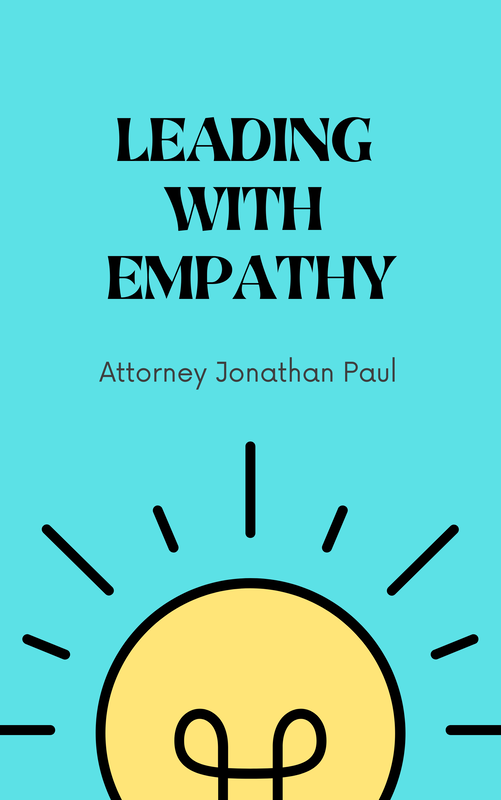Leading with Empathy - Step #16When charged with a crime in Michigan, it is easy to internalize the case, and focus on your own prospective. We fail to acknowledge that the judge, prosecutor, police, probation and any victims or witnesses likely have a different view of the case.
Becoming externally aware of different perspectives means taking feedback from others and creating an environment where that feedback is used for further progress. It means perceiving and identifying opportunities and experiences outside of our own mind. We don't have all the answers, and to think any different closes our mind off to growth. We must embrace the input, feedback and wisdom of others; it is easy to deny and close your mind when in a challenging situation, but that limits our opportunity for growth. Most would view a criminal charge as a negative moment in life, but if the case is manageable, it can be viewed as a positive intervention before something worse happens. Being externally open allows us to see our case from a fresh view; to move away from the victim mindset, and into a growth mindset. If you fail to be externally open, your mind becomes stale and other around you become nonbelievers; you remain a criminal charge and a name; if you're willing to wake up every morning and brake fresh bread and serve it with enthusiasm, you’re going to create deep change. We must wake up every morning and maximize our impact; leave yesterday behind, and not rest on our prior day success. When charged with a crime, a small step of progress is not enough; you must demonstrate deep change and commitment every single day. Once we embrace the daily progress mindset, we can share this fresh mind and daily growth with the power brokers in the case; being a transformative client means a fresh take on conflict and leaving the comfort mindset. When a client goes to court, there are going to bumps and bruises; a judge and prosecutor are going to resist change, and still treat you "like a criminal", especially early in the case. They are going to have strong opinions, order you to do things that may seem unreasonable, inconvenient and unnecessary; you have no formal power to deny these orders; only over time can you earn consideration of reversal and benefit of the doubt. You must be open to feedback and accept it with a firm demeanor and a humble mindset. You cannot be disinterested in feedback; you can certainly not be unwilling, because you will end up in jail. In order to grow and create deep change, we must open ourselves to feedback from others. Many people send out a very strong message "we don’t want feedback" - feedback is the breakfast of champions we need it. The best approach for a criminal case is to lead with empathy and values; to share purpose and confidence from the very beginning and ask for a runway to be authentic and show integrity in our commitment to deep change. To hold ourselves accountable to a higher standard and ask those involved in the case to hold us to the same, above and beyond the requirements of the court. Real life example of keeping an open mind to the world It’s very common for a client to appear in court for the first time, and the judge to drop a bunch of inconvenience bombs on a client. Judges have denied clients ability to travel out of state, tested them for alcohol and drugs even though a case doesn't have any substances in the facts. Once I had a client who went to college in a different state, and the judge refused to allow my client to leave Michigan to go back to school in a different state. The judge decided this in court and would not budge. My client could have reacted in shock, anger or disgust and responded as such to the judge; this would not have done them any good, because the judge has the formal power to do adopt this ruling. Asking the same thing repeatedly only makes things worse when one person has formal power, and the other does not. I told my client to keep their cool, say "yes your honor" then we worked on an alternative route to leaving the State; within a few hours of the hearing, my client was granted permission to go back to school; if my client had reacted in a different way, they may have sunk their chances of going back to school, but the client having respect for the judge and allowing me to go the legwork away from the heat of the courtroom was the solution to a stressful and anxious time for the client. Comments are closed.
|
Available on AmazonJonathan Paul- X-Prosecutor |
